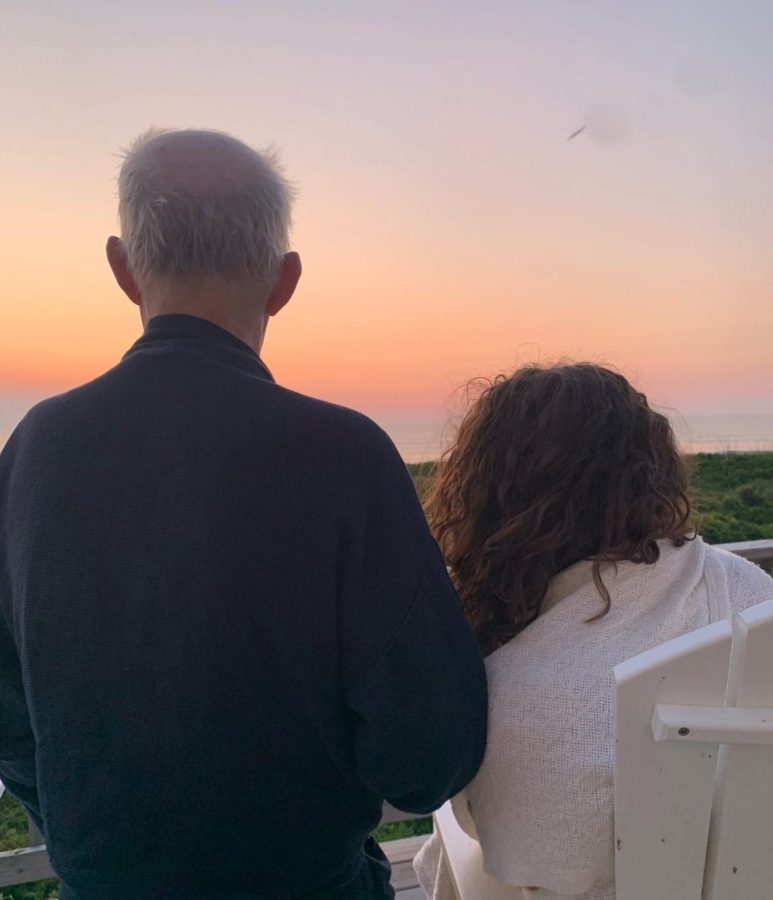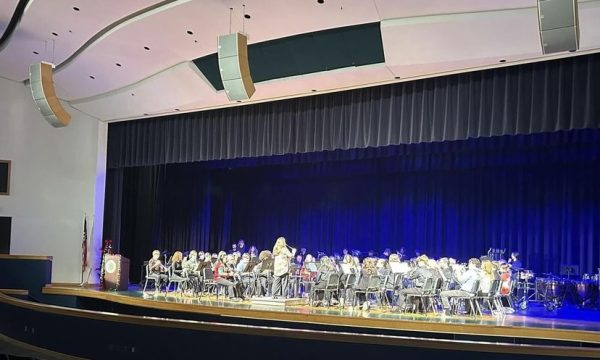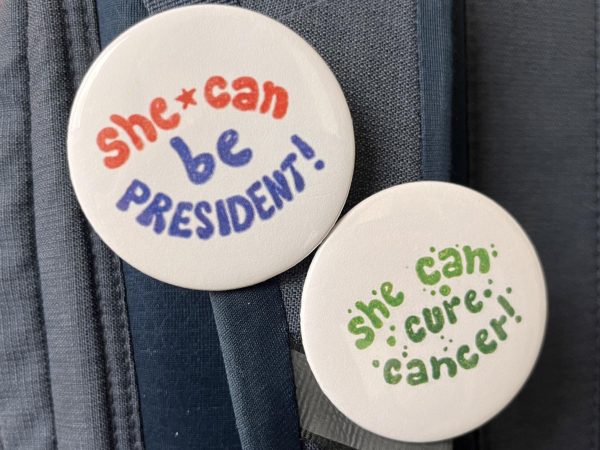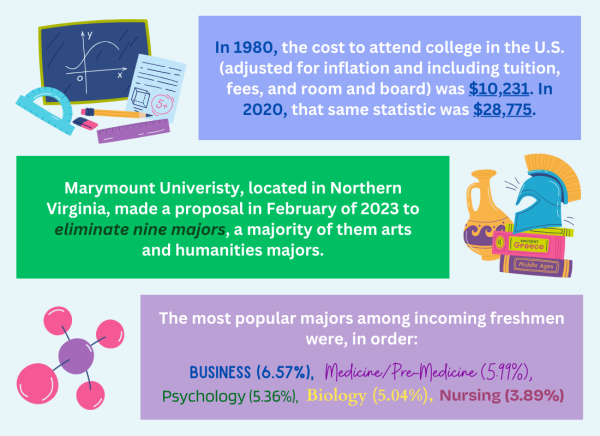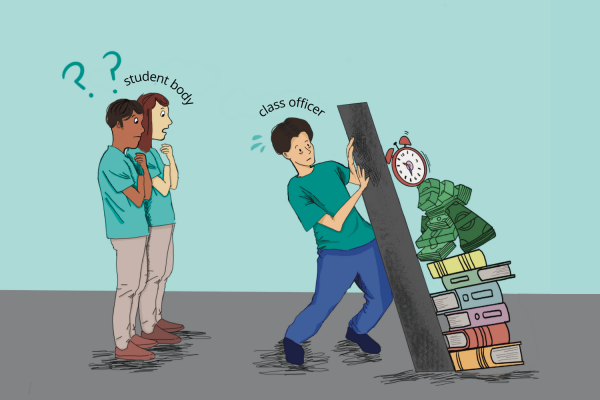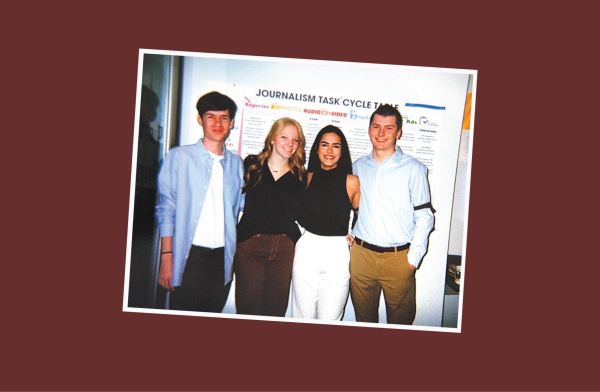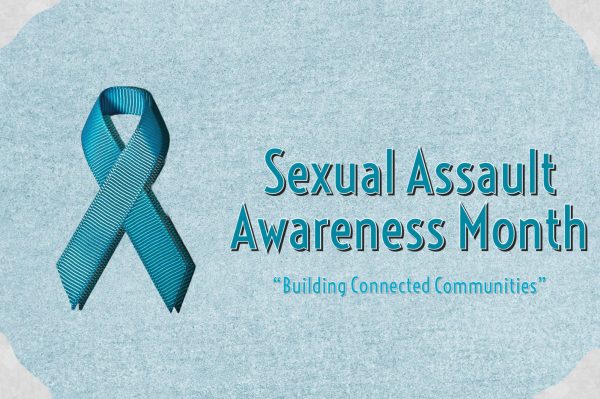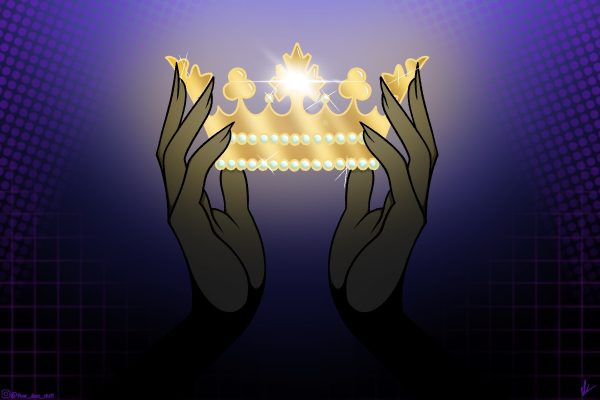Finding the Grace in Grief
How one Liberty student has learned to cope with tremendous loss.
Courtesy of Rosie Terry
Rosie Terry and her dad watching the sunrise on their vacation to the Outer Banks.
April 26, 2022
“Time heals all wounds” is a phrase that so many of us have heard in our life, especially when something traumatic has happened. These four words have been expressed to me time and time again by an array of people, but most notably, last fall.
In October of 2021, I lost my loving father to stage four cancer; something that I’m still struggling to process. He was my rock, my shoulder to cry on, and above all, my best friend. He was so full of life. And because of that, I struggled more than most with the fact that he was gone. “How could a man that was so full of life and loved living be taken away so soon?” That is the question I’ve constantly struggled to deal with over the last six months.
During the first few months after my father’s passing, I was angry. I was angry at everything and everyone. But more than anything, I was angry with myself. I couldn’t believe what I had done, or rather, what I hadn’t done. I hated myself. I was mad at myself for all the times I had blown my dad off when he wanted to read, claiming that I was “too busy.” I despised all the times that I was on my phone in the car with him. But more than anything, I hated that I didn’t spend more time with him. I was so caught up in my own life in the months leading up to his death that I didn’t acknowledge that those were going to be his last. In all honesty, I knew that he was getting worse, I just didn’t want to admit it.
I rarely let myself get sad about my dad, especially before his death. Once, when my father was getting really sick, I had a friend ask why I didn’t get sad or talk about my father’s impending death. At the time, I didn’t have a specific answer. There weren’t any life-altering words said to me that changed my outlook. No instance that made me decide not to grieve the living. Nothing of the sort. At the time, I just didn’t see the point. Why should I spend time grieving a loss that hadn’t even happened yet? In all honesty, it didn’t seem practical for me to be sad. I knew there was going to be more than enough sadness surrounding me after the passing, so why would I add some beforehand? So, I didn’t. I spent the months before my dad’s death enjoying life, knowing that in a few months time that wouldn’t be the case.
Does that sound selfish? Yes. Yes it does. But in all honesty, those months were some of the best ones of my life. I prioritized spending more time with my dad than ever before, and made some of my favorite memories with him. I got up early with him to watch the sunrise, sat with him on the beach when he was too tired to walk, and talked to him about everything. Not a lot of people know this, but my father was an amazing man. Maybe I’m biased, but I don’t believe so. From summiting Kilimijaro to learning to play the piano at the age of 52, he was an adventurer. But those triumphs weren’t what made him so incredible. What made him incredible was his outlook on life. He didn’t look back. He didn’t ponder on what he should’ve done, but instead took his “mistakes” and used them as lessons on what he could do differently in the future. And for that I am forever grateful. In a way he didn’t even realize, he gave me the tools and mentality for how to deal with his death.
Like many of us, I tend to be self-critical. It’s human nature in a way. But it drastically increased after my father’s passing. As I said earlier, I was mad. I’m not an angry person, but I was for a while. I let my anger get the best of me on many occasions, bringing it out on my friends, family, and myself. How was I supposed to keep going when my world was suddenly tilted on its axis with no way to turn it upright again? I didn’t. For a while, I was on autopilot, simply trying to get through the day. During the school day, I would tell myself “Three more periods. That’s all you have to get through,” until I could go home. I started to form daily goals. They weren’t much, but while I was deep in grief, they became a triumph each time I was able to meet one. Some days, they were as little as remembering to eat three meals a day, while other days they were bigger, like studying for a test. I would reward myself with down time, baking cookies, or getting a drink from The Depot at the end of the day. This wasn’t a perfect solution to my grief, but it forced me not to wallow in it, letting it consume me. Over time, my goals started to get bigger. Instead of working towards a goal to meet at the end of each day, it became one at the end of each week, and so forth. After some time, I found I wasn’t on autopilot anymore. Waking up and going to school no longer felt like a chore. I was starting to enjoy myself again.
Now none of this is to say I didn’t have “bad” days. I did, and I still do. There’s days when it feels impossible to get out of bed, and days where I’m still upset with myself for all the times I didn’t spend time with my dad when I could’ve. But by pushing myself forward and using those days as motivation and proof that I can get through tough times is what keeps me going. By using my father’s philosophy of acknowledging the past and using it to positively influence the future, I have learned to find grace. In my family, my friends, and most importantly, in myself.
This story was originally published on The Live Wire on April 20, 2022.



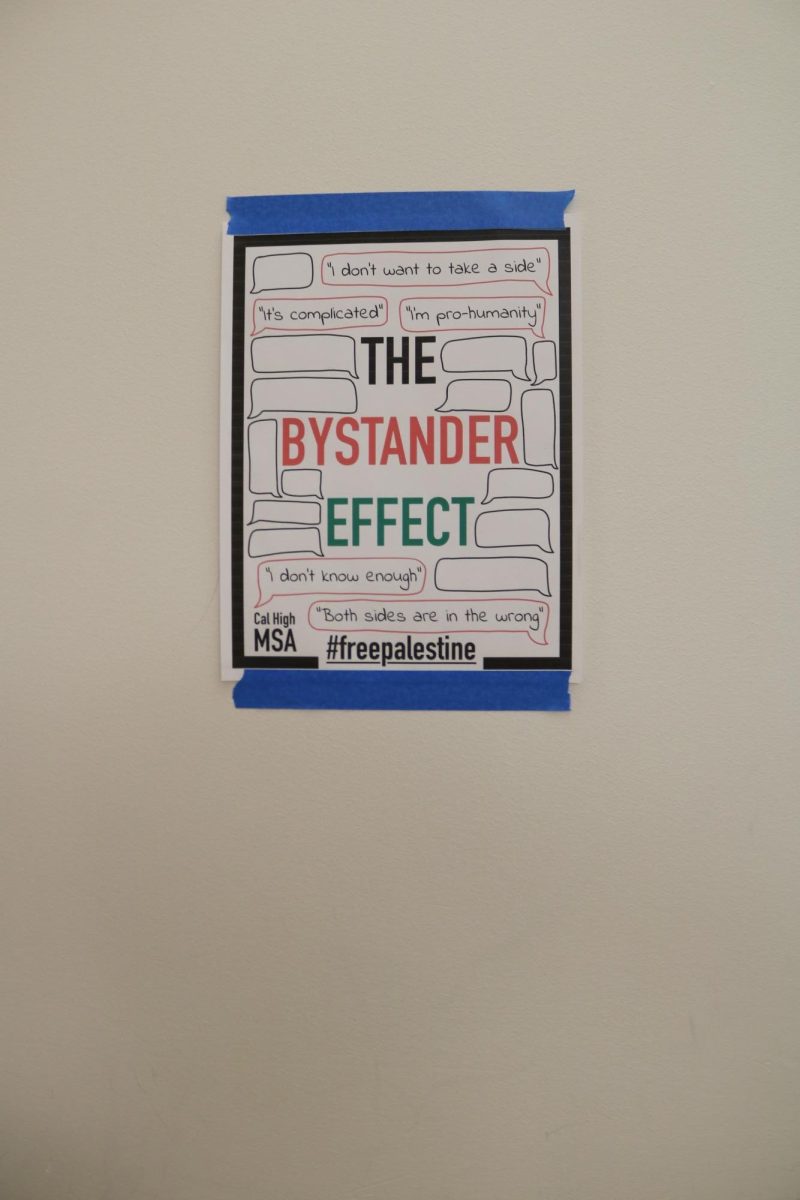
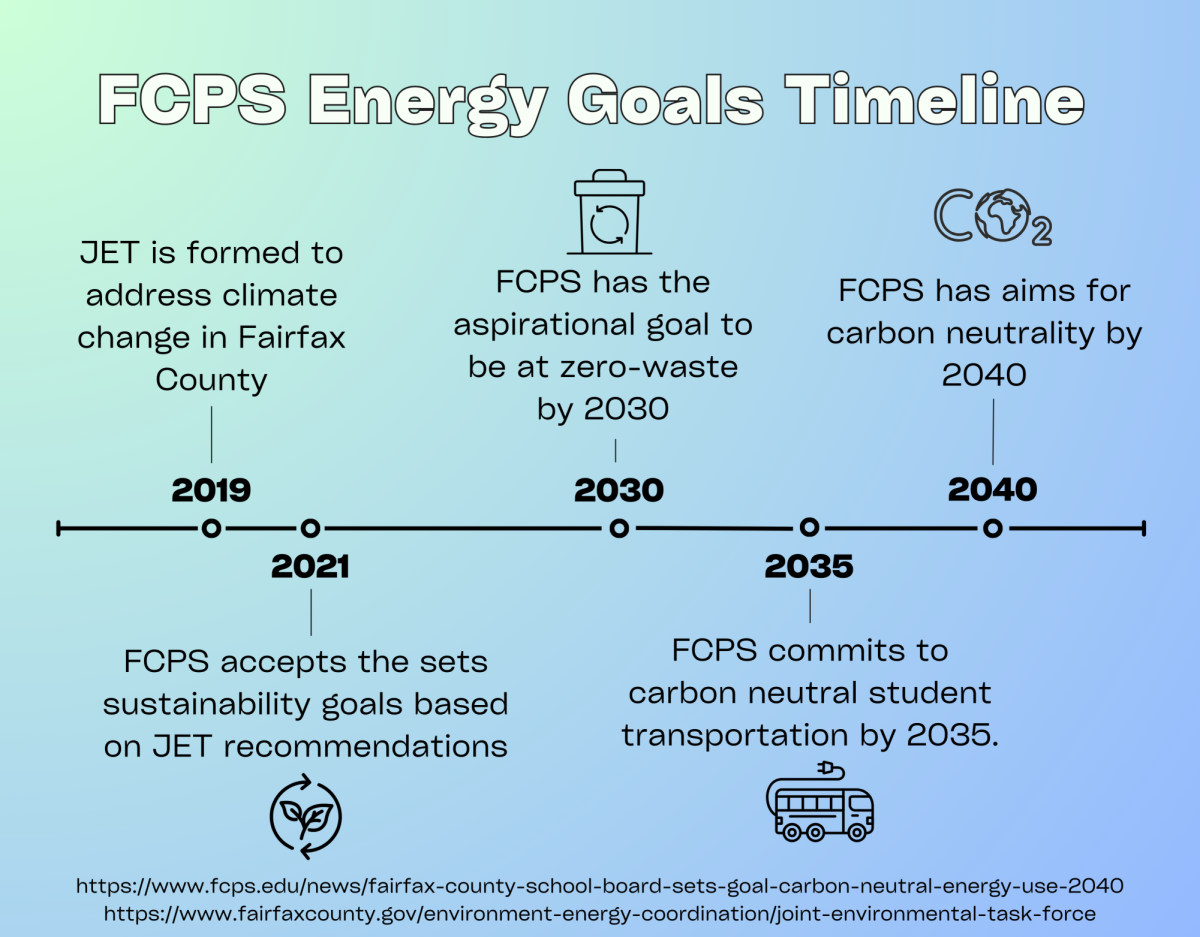







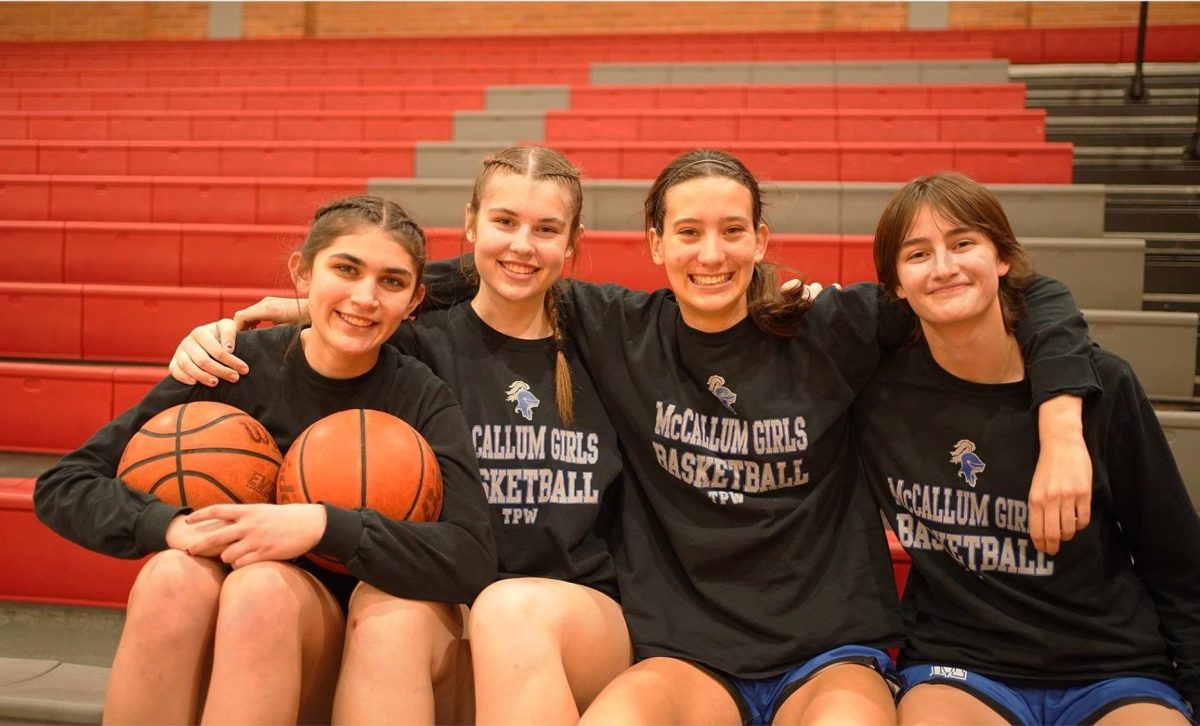


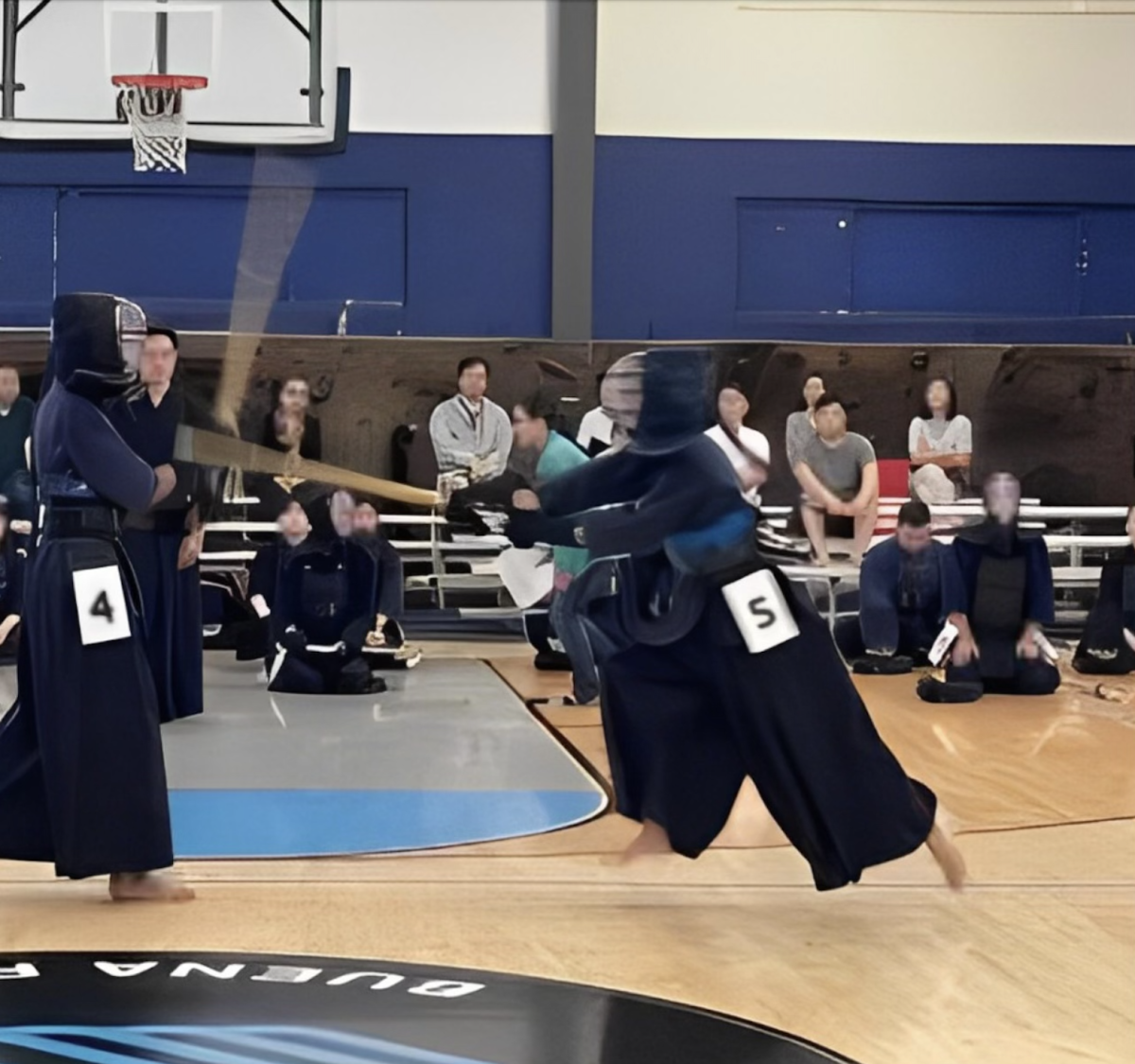

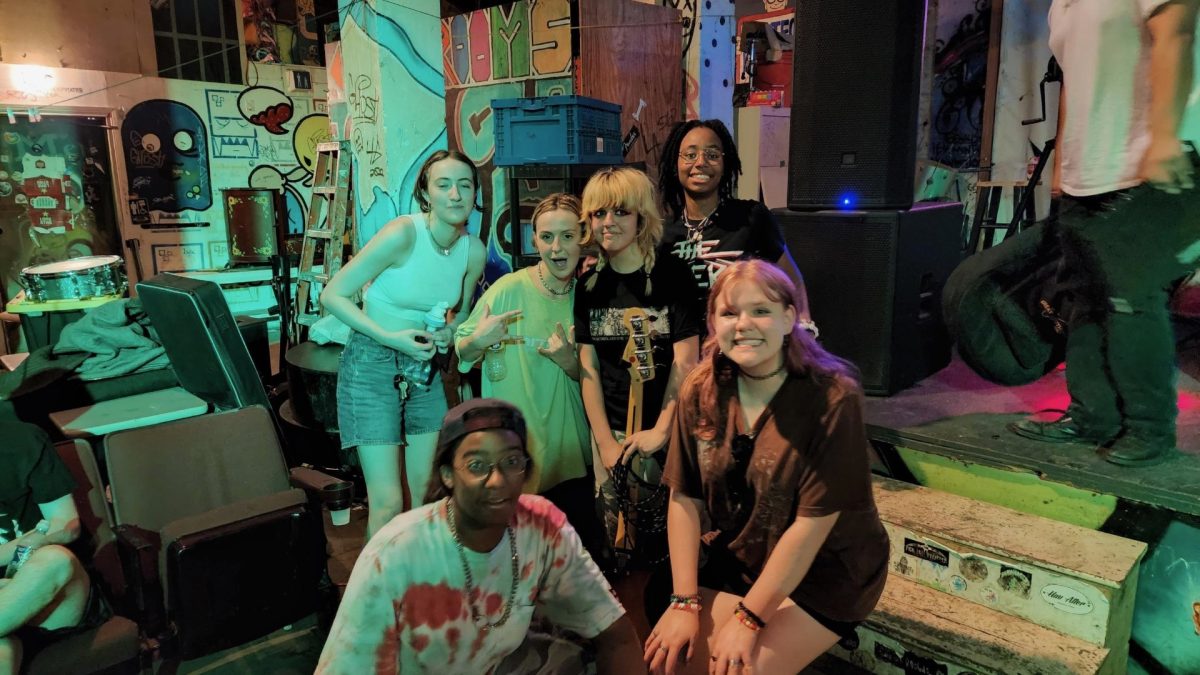














![IN THE SPOTLIGHT: Junior Zalie Mann performs “I Love to Cry at Weddings,” an ensemble piece from the fall musical Sweet Charity, to prospective students during the Fine Arts Showcase on Wednesday, Nov. 8. The showcase is a compilation of performances and demonstrations from each fine arts strand offered at McCallum. This show is put on so that prospective students can see if they are interested in joining an academy or major.
Sweet Charity originally ran the weekends of Sept. 28 and Oct. 8, but made a comeback for the Fine Arts Showcase.
“[Being at the front in the spotlight] is my favorite part of the whole dance, so I was super happy to be on stage performing and smiling at the audience,” Mann said.
Mann performed in both the musical theatre performance and dance excerpt “Ethereal,” a contemporary piece choreographed by the new dance director Terrance Carson, in the showcase. With also being a dance ambassador, Mann got to talk about what MAC dance is, her experience and answer any questions the aspiring arts majors and their parents may have.
Caption by Maya Tackett.](https://bestofsno.com/wp-content/uploads/2024/02/53321803427_47cd17fe70_o-1-1200x800.jpg)
![SPREADING THE JOY: Sophomore Chim Becker poses with sophomores Cozbi Sims and Lou Davidson while manning a table at the Hispanic Heritage treat day during lunch of Sept 28. Becker is a part of the students of color alliance, who put together the activity to raise money for their club.
“It [the stand] was really fun because McCallum has a lot of latino kids,” Becker said. “And I think it was nice that I could share the stuff that I usually just have at home with people who have never tried it before.”
Becker recognizes the importance of celebrating Hispanic heritage at Mac.
“I think its important to celebrate,” Becker said. “Because our culture is awesome and super cool, and everybody should be able to learn about other cultures of the world.”
Caption by JoJo Barnard.](https://bestofsno.com/wp-content/uploads/2024/01/53221601352_4127a81c41_o-1200x675.jpg)




